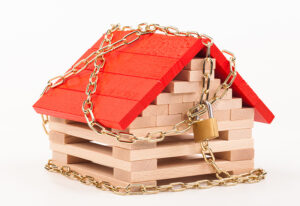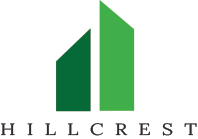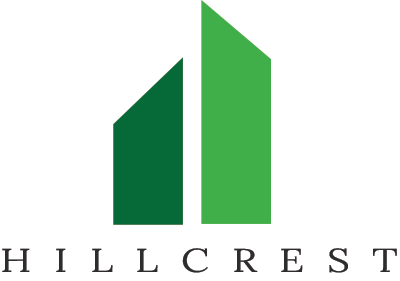Having a high HOA delinquency rate can negatively impact association finances. Board members should know how to deal with delinquent accounts, while homeowners should do their best to minimize delinquencies. In doing so, they can maintain high property values and ensure their investments are safe.
What is HOA Delinquency?
In homeowners associations, delinquency refers to a failure to pay outstanding dues. Homeowners in HOA communities have an obligation to pay regular fees. The HOA then uses these fees to cover various expenses related to the management and operations of the association.
When a homeowner defaults on their dues, they are considered delinquent. Now, one delinquent homeowner is not much of a problem. But, if more homeowners stop paying their dues, the HOA can face a barrage of financial and longevity issues.
What is the Average Delinquency Rate for Condos and HOAs?
The average delinquency rate for condos and HOAs is difficult to gauge for a number of factors. These include the average fee amount, location, size of the community, and the type of association. In general, delinquency rates for condos and HOAs range from 1% to 8%.
It is important to understand that the COVID-19 pandemic brought significant changes for many communities. A lot of Americans experienced financial hardships, leading to defaulting on payments such as mortgages and HOA fees.
While the delinquency rates fell in single digits before the pandemic, post-COVID rates can go as high as 35%.
How HOA Delinquent Accounts Affect Finances
When a lot of homeowners stop paying their dues, associations can face a multitude of problems. Here are the potential consequences of delinquent HOA fees on a homeowners association.
 1. Reduced Cash Flow
1. Reduced Cash Flow
When owners don’t pay on time, the HOA won’t have the funds it expects to cover monthly expenses. This can lead to delayed payments to vendors, which can result in penalties and a strained working relationship. It can also result in insufficient funds for maintenance as well as difficulty funding other projects or operations.
2. Higher Dues or Special Assessments
To cover the shortfall of a high HOA delinquency, the HOA would need to raise regular dues or levy special assessments. This would be unfair to homeowners who already pay on time as it results in a heavier financial burden for them.
3. Delayed or Abandoned Projects
Associations rely on dues for revenue. With less revenue, the board may be forced to postpone improvement projects such as painting or repaving, leading to deterioration and lower curb appeal. It can also force the board to cut back on services like security and landscaping.
4. Increased Collection and Legal Costs
Collecting delinquent HOA fees is essential, but it can also be time-consuming and expensive. Associations may need to hire attorneys or collection agencies that charge high rates. Plus, there are legal fees and court filing fees, too.
5. Underfunded Reserves
One way an HOA board deals with delinquencies is to dip into the association’s reserves to cover shortfalls. This will put future repairs and emergencies in jeopardy, as the HOA would not have enough reserve funding. The HOA would also fail to contribute to reserves when homeowners stop paying their dues.
6. Mortgage Issues
An HOA with a high delinquency rate might not be able to qualify for loans. Moreover, it can affect an owner’s ability to sell their home or unit. Some lenders, such as Fannie Mae, have strict guidelines for financing. This can affect sales in the community, preventing new homeowners from coming in.
Fannie Mae HOA Delinquency Guidelines
To qualify for financing, Fannie Mae requires condominium projects to have no more than 15% of total units be more than 60 days delinquent in HOA dues. If the association has more than this, buyers may not qualify for conventional loans and lenders may refuse to issue loans.
 7. Lower Property Values
7. Lower Property Values
A high delinquency rate can cause maintenance to suffer and services to drop. All of this combined can cause property values to plummet as well. This will make the neighborhood less attractive to buyers, lenders, and investors.
How to Collect Delinquent HOA Dues
It’s clear that a high HOA delinquency rate has a profound negative impact on a community. For this reason, HOA boards must be proactive in collecting unpaid dues.
Here are the usual strategies HOAs adopt to collect outstanding fees.
1. Send an HOA Delinquency Notice
Every collection process begins with notice. The HOA board will send an HOA delinquency letter to the homeowner, complete with all necessary details. This includes the total amount due, the deadline, and what can follow if the amount remains unpaid.
2. Impose Late Charges and Interest
Depending on state laws and the governing documents, an HOA can impose late charges and interest on unpaid dues. In negotiations, the board may be able to waive these charges if the homeowner is willing to pay the outstanding amount in whole.
3. Offer Payment Plans
To collect unpaid dues, an HOA can offer a payment plan to the delinquent homeowner. The board should make sure their governing documents allow payment plans. In some states, it is even mandatory to offer a payment plan prior to pursuing other legal remedies.
4. Hire a Collection Agency
The HOA can refer the delinquent account to a collection agency. This agency assumes the role of debt collector, charging the HOA a flat fee or a percentage of the collected amount.
5. Sue for a Money Judgment
The HOA can sue the delinquent homeowner for the outstanding dues. This can potentially lead to a court order for the payment of the debt.
 6. File a Lien
6. File a Lien
For most HOAs, filing a lien is an option to collect delinquent HOA dues. Liens make it difficult for owners to refinance their mortgage or sell their homes, as they will need to satisfy the lien first.
7. Initiate Foreclosure
In some cases, an HOA can foreclose on the lien and sell the home to cover the unpaid dues. This means homeowners can lose their home if they default on their dues.
How to Reduce HOA Delinquency
Delinquencies can be difficult to cure, especially when the rate is already too high. Associations are better off preventing delinquencies than finding a way to resolve them.
To do that, it is important to have an HOA delinquency policy. This policy can help reduce unpaid dues within the HOA community and generally include the following:
1. Sending Reminder Letters
Sometimes, homeowners just forget about their dues and deadlines. To combat this, the HOA board should consistently send reminder letters to all homeowners. This reminder should include the due date, the amount they owe, and what payment methods they can use.
2. Offering Several Payment Methods
Speaking of payment methods, an HOA should offer several options to allow for more flexibility. Homeowners don’t always have the time or means to mail a check or send cash. In addition to these methods, others should include bank transfers, ACH payments, credit or debit, and even mobile payment apps.
3. Making Account Statements Accessible
Homeowners may want to check their statements without having to contact the board or community manager. To accommodate this, an HOA should invest in software that comes with a homeowner portal. From this portal, owners can check their account statements and balances.
 4. Educating Homeowners
4. Educating Homeowners
Board members should educate homeowners on the HOA’s delinquency policy. It is also important to let them know why dues are important and how defaulting on them can negatively impact both the HOA and their own investments.
The Right Thing to Do
A high HOA delinquency rate can cripple an association financially and scare away both potential buyers and current owners. To avoid this, HOA boards should be proactive in educating homeowners and enforcing its policies.
Hillcrest offers HOA management services to communities in Chicago. Call us today at 630-627-3303 or contact us online to request a proposal!


